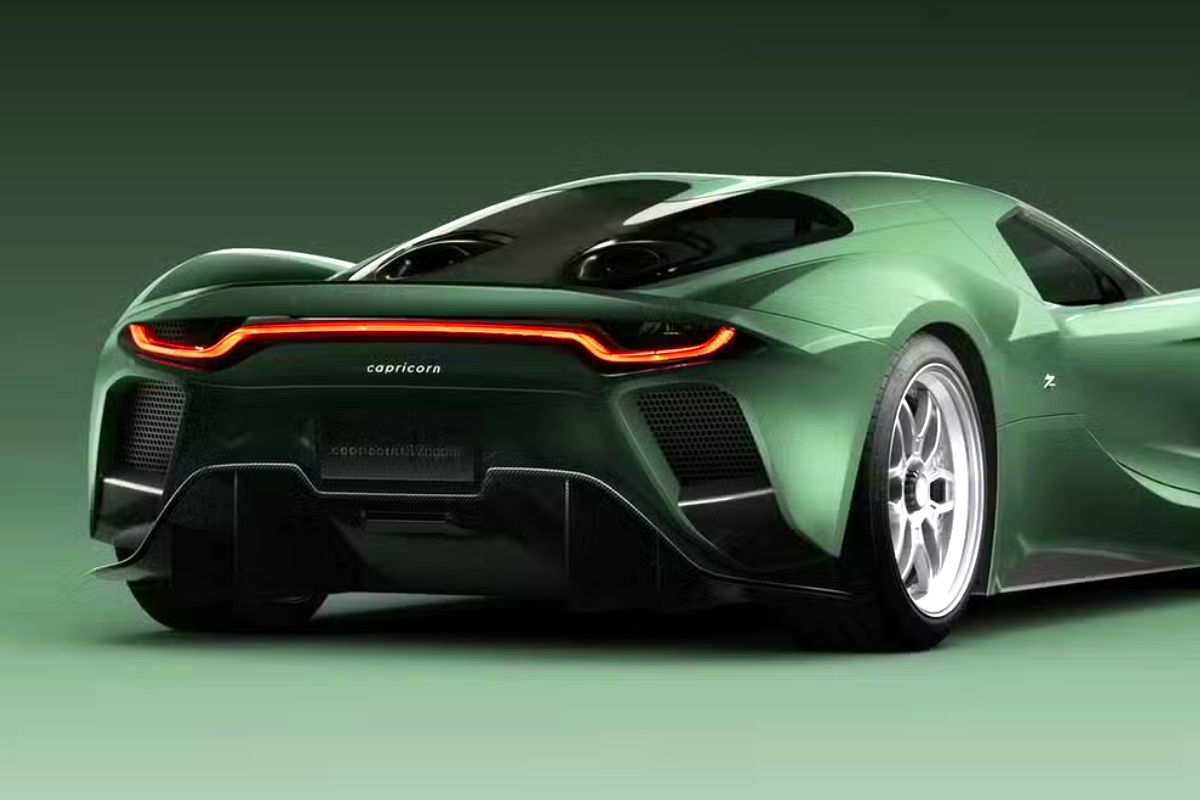
At a time when electrification seems inevitable and new hypercars compete with screens and new technologies, a new creation arrives like a manifesto for pure driving pleasure. It's called the Capricorn 01 Zagato, and underneath lies an unlikely alliance of German rigor, Italian elegance and American power.
The unlikely union of three worlds
Behind this crazy project is the Capricorn Group, a German company founded almost a century ago, known behind the scenes in motorsport for its ultra-light components. Its products have contributed to the success of Porsche at Le Mans, Mercedes and Lotus in F1, and Volkswagen in the WRC. Today, Capricorn is stepping out of the shadows and into the light with its own car, in association with a legend of automotive design: Zagato.
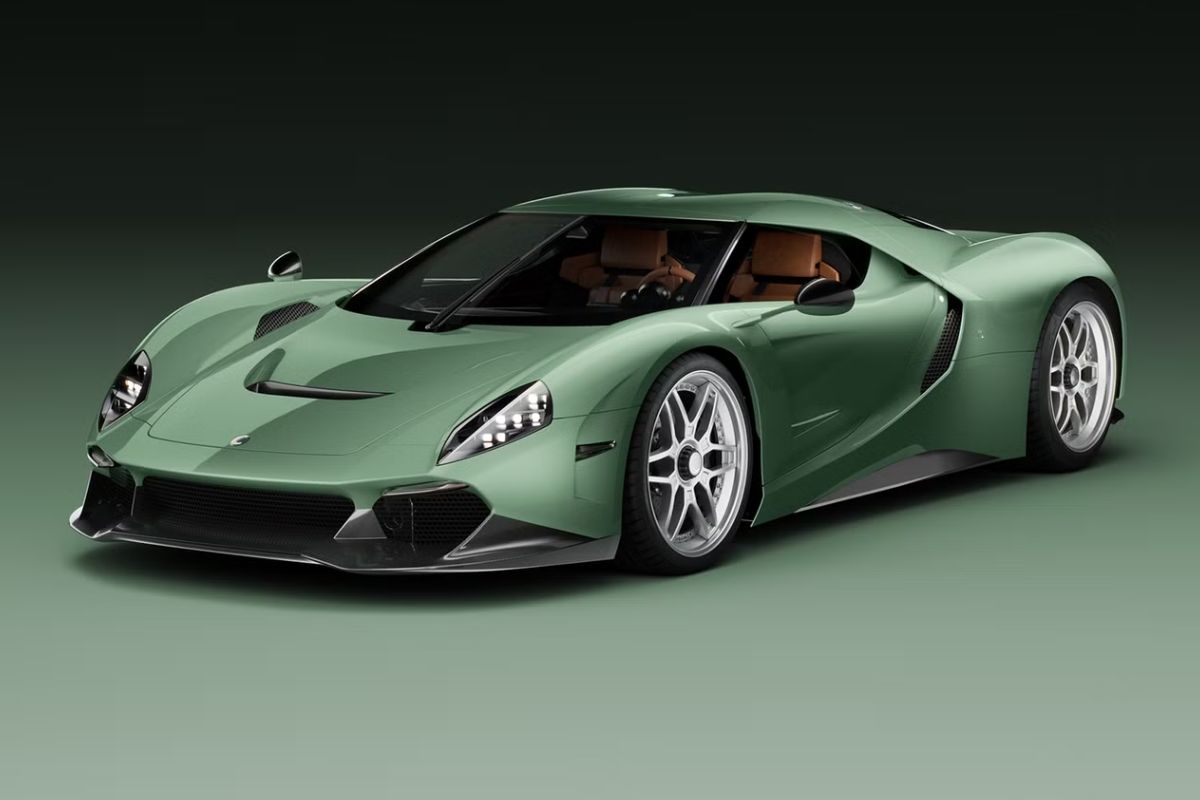
Based in Milan, the Italian coachbuilder has put his signature on some of the most beautiful cars ever built for Alfa Romeo, Lancia and Maserati. For the Capricorn 01, Zagato designed a body that is both sculptural and functional, where every line has a purpose. No extravagant spoilers or aerodynamic gimmicks: the car generates its downforce through body-integrated airflows, hollowed surfaces and flowing shapes. The result is a silhouette that is pure, muscular and timeless, enhanced by butterfly doors that mark its exclusivity.
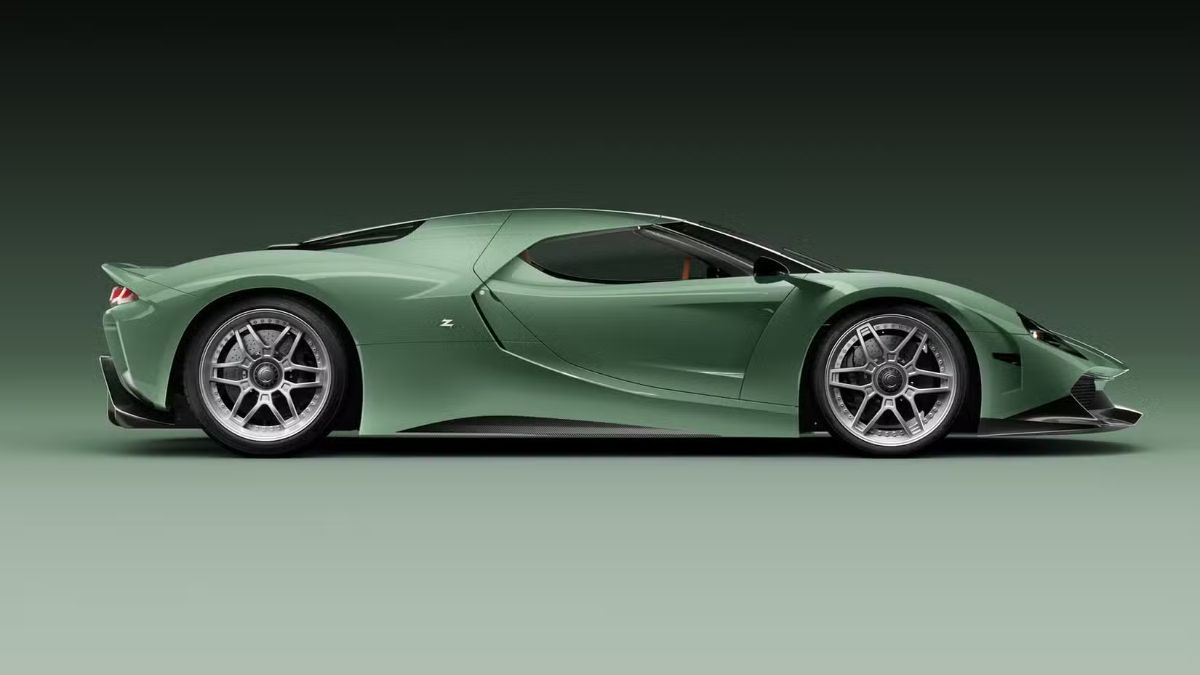
A prototype chassis and an American heart
Beneath its Italian exterior, the Capricorn 01 hides the soul of a racing car. The chassis is an LMP1 carbon monocoque, directly inspired by endurance prototypes. It weighs less than 1,200 kg, barely more than a Mazda MX-5.
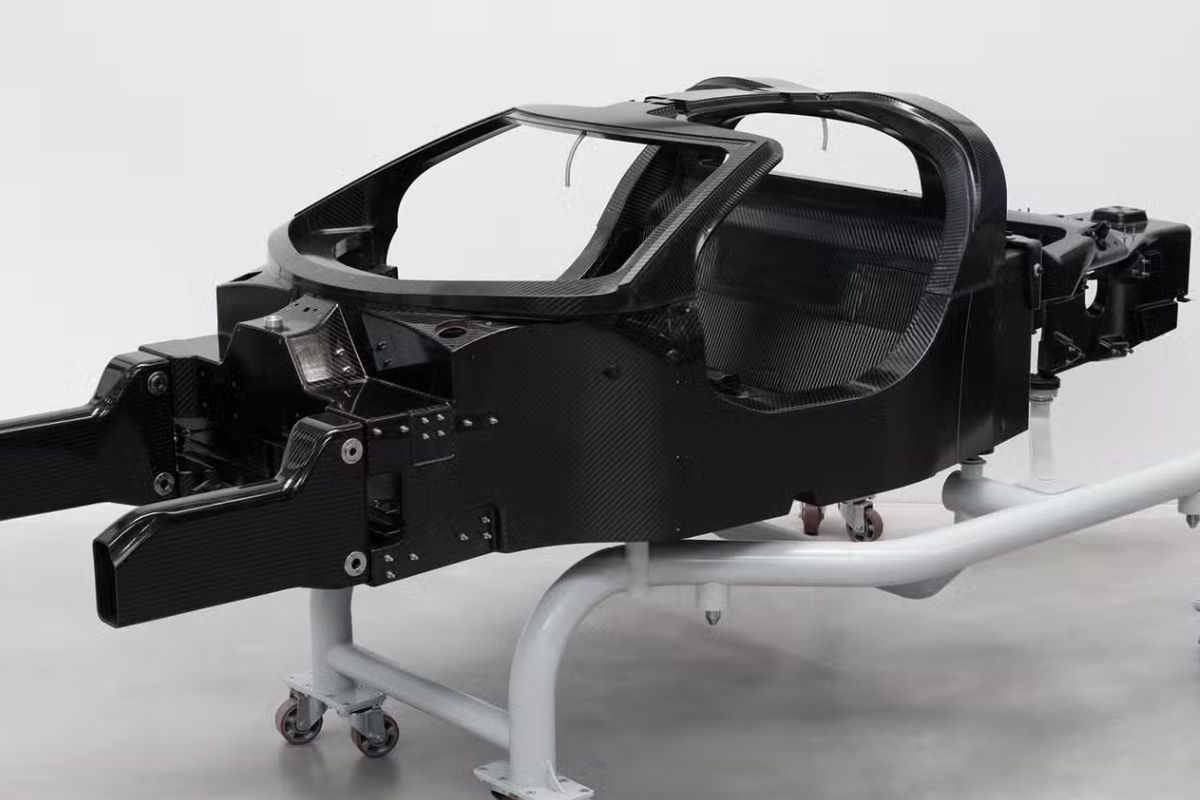
And in the middle, an... American engine: a 5.2-liter Ford V8 extensively reworked by Capricorn. Equipped with a supercharger, it develops 888 hp and 1,000 Nm of torque, while revving up to 9,000 rpm. That's enough to propel the car to 360 km/h and accelerate from 0 to 100 km/h in less than 3 seconds.
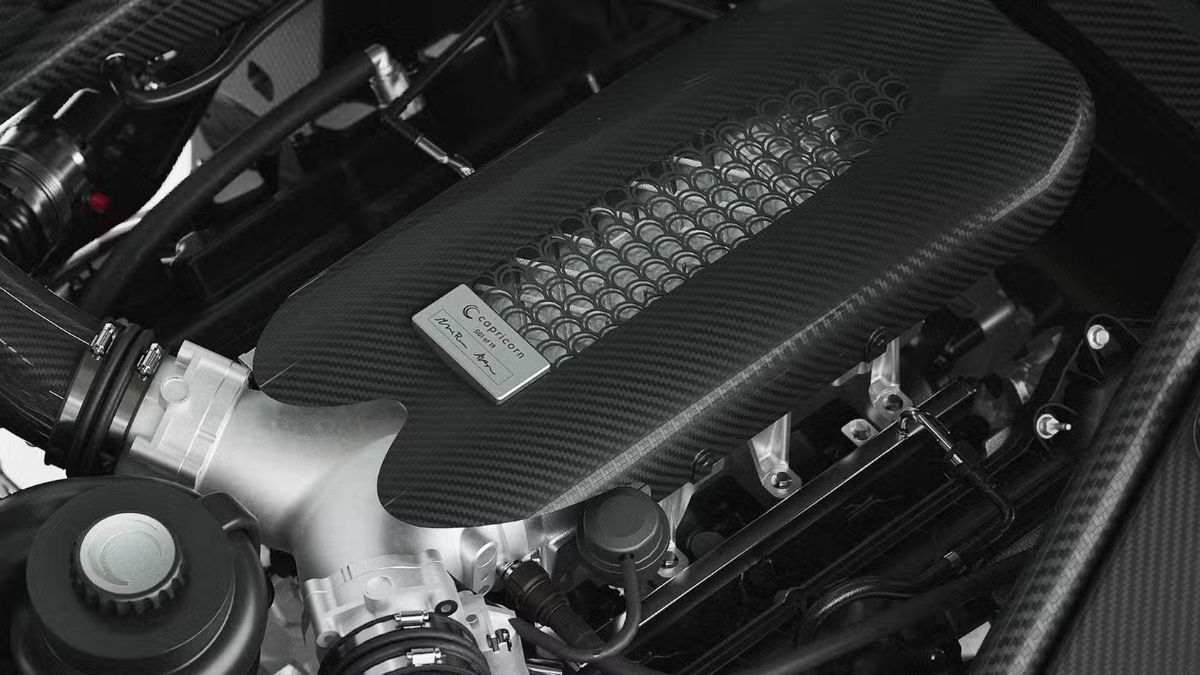
But the most delicious detail is the transmission: a 5-speed manual gearbox from CIMA, the same supplier as Pagani and Koenigsegg. At a time when the world of supercars is dominated by steering-wheel-mounted paddles, this choice is something of a provocation. Capricorn CEO Robertino Wild sums it up: "We have prioritized the driver's passion and commitment over the quest for absolute performance."
Mechanical craftsmanship at its peak
The interior, designed by Capricorn, rejects any form of distraction. No central screen, but analog instruments, machined from metal, with a central rev counter as throne. Switches are cut from titanium and aluminum, and fixed seats are part of the structure, with a choice of Connolly leather or Alcantara upholstery.
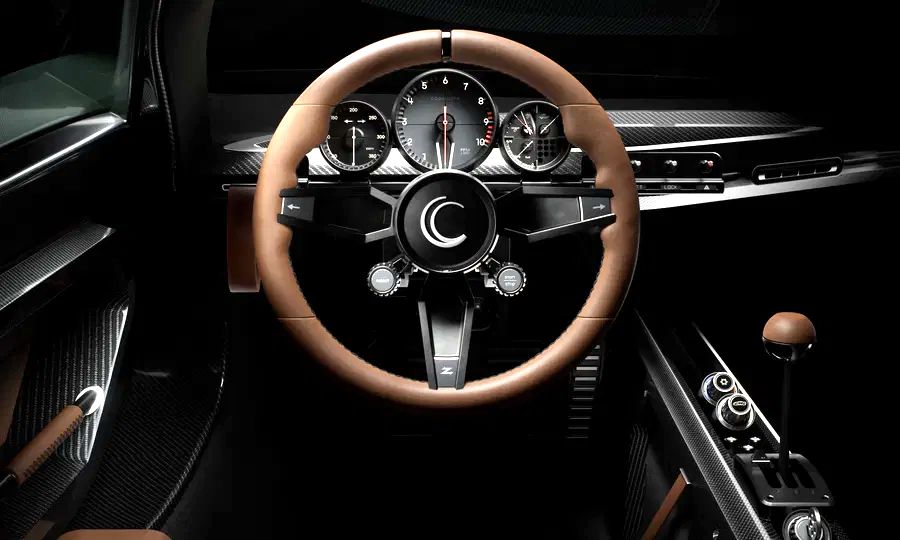
Everything has been thought out for the feel: the electric power steering disconnects at high speed, the Bilstein double wishbone shock absorbers have three modes (Comfort, Sport, Track), and the Brembo carbon-ceramic brakes hide behind 21-inch wheels available in aluminum or carbon. Even the gearshift can be adjusted by 8 cm to achieve the perfect position.
19 copies, and not one more
Only 19 examples will be produced, in tribute to the year Zagato was founded, 1919. Each car will be hand-assembled in Germany, sold in selected markets (Europe, Japan, Canada, Middle East...) and priced from 2.95 million euros.
But for Capricorn, this is just the beginning. The company plans to expand its Nürburgring facility from 2026 to produce up to 200 vehicles a year, including some for other automakers or private customers.
A manifesto against the digital age?
The Capricorn 01 Zagato is an analog manifesto, a bridge between two eras. In a car industry saturated with gadgets, it embodies a rare philosophy of raw mechanical pleasure, of direct contact between man and machine.

大変面白くそして魅力的な車ですね
ヨーロッパとアメリカの技術が融合してこのような素晴らしい存在を知ることが出来たことを嬉しく思います